- Home
- Bryce Courtenay
Matthew Flinders' Cat
Matthew Flinders' Cat Read online
Bryce Courtenay is the bestselling author of The Power of One, Tandia, The Potato Factory, Tommo & Hawk, Jessica, Solomon’s Song, The Night Country, Smoky Joe’s Cafe, Four Fires and Matthew Flinders’ Cat.
Bryce Courtenay was born in South Africa, is an Australian and has lived in Sydney for the major part of his life.
Further information about the author can be found at www.brycecourtenay.com
Bryce Courtenay
MATTHEW FLINDER’S CAT
McArthur & Company
Toronto
First published in Canada in 2003 by
McArthur & Company
322 King Street West, Suite 402
Toronto, ON M5V 1J2
www.mcarthur-co.com
Copyright ©Bryce Courtenay 2002
All rights reserved. Without limiting the rights under copyright reserved above, no part of this publication may be reproduced, stored in or introduced into a retrieval system, or transmitted, in any prior written permission of both the copyright owner and the above publisher of this book.
Cover design by Debra Billson © Penguin Group Australia
Cat Image Tim de Neefe
Sydney at Disk Image Carbis with permission of Sydney Opera House
Strange Fruit (Lewis Allan) © Lyrics reproduced with kind permission by J. Albert & Son Pty Ltd.
Library and Archives Canada Cataloguing in Publication
Courtenay, Bryce, 1933-
Matthew Flinder’s cat / Bryce Courtenay.
ISBN 1-55278-436-3
I. Title.
PR9619.3.C598M38 2004 823 C2004-904050-2
eISBN 978-1-77087-041-3
eBook Development by Wild Element www.wildelement.ca
www.brycecourtenay.com
DEDICATION
For Dorothy Gliksman
*
Also
The Salvation Army
&
Jeff and Alina Gambin
of the Just Enough Faith Food Van
ACKNOWLEDGEMENTS
Authors such as me wouldn’t get very far without the generous help others afford them. Readers sometimes ask me where I learn all the stuff in my books and the answer, of course, is that I borrow material from minds far better than my own. Those of us who write are literary magpies gathering bright objects for later use in our work.
For all the bright objects in this book I thank the names that follow. Firstly, my partner Dorothy Gliksman on two counts: she gave me the space to write uninterrupted, and she was my first proofreader. Her suggestions were always considered and wise.
Then my thanks to Celia Jarvis, who was again the principal researcher on this book and, as always, did more than I could possibly have asked from her, often working through the night to keep up with my not always reasonable demands. I cannot thank you enough.
There were the others who gave unstintingly of their knowledge and offered help. From the Salvation Army, Gerard Byrne, Major Cliff Randall, Christine Garvan, Major Kevin McGrath, Vincent Byrne, Captain Paul Moulds and Annie Winn, I thank you all.
At St Vincent’s Hospital, Associate Professor Gordian Fulde and his staff in the Emergency Department.
Senior mental health worker at The Station, Danny Gibson. The Just Enough Faith food van, Jeff and Alina Gambin, who feed the destitute, the homeless and the hungry every night of the week. Alcoholics Anonymous, Mission Australia, the Royal Botanic Gardens, and the NSW Department of Health. Steve Despea, my bodyguard, who accompanied me into dark corners where this book often took me. Ian Faulks from the Committee on Children and Young People, Mrs Nerida Murray, Principal of Plunkett Street Public School, Senior Constable Paul Hunter from Brisbane Central Police Station, Rick Osborne from the Albion Street Centre, Jeff Fenech from Team Fenech, Martin Mulhall, Kings Cross Police Station, William MacKenzie, Drug and Alcohol counsellor, Alan Jacobs, Consensus Market Research Analyst, Dr Michael Gliksman, Dr Irwin Light, Alex Hamill, Owen Denmeade, George Christou and any others I may have missed and who gave me advice and help.
My sincere thanks for the help I received from the following web sites: Australian Child Protection Alliance, Australian Institute of Criminology, Parliament of New South Wales, Matthew Flinders Electronic Archive, State Library of New South Wales, NSW Commission for Children and Young People, Australian Bureau of Statistics, Interpol International, The Law Society of New South Wales, Parliament of Australia, Justice for Juveniles, Department of Community Services, NIDA, and the hundreds of other sites we dipped into. Whatever the pros and cons of the Internet, it is an author’s very best friend.
Dozens of books were consulted for a work such as this one and I thank all the authors who gave me of their knowledge. My special thanks to Tim Flannery for his Terra Australis, and to Paul Brunton for his Matthew Flinders – personal letters from an extraordinary life, published by the State Library of New South Wales. Their scholarship and writing on the subject of the great navigator made my task easy. Also to Sue Williams for her book Peter Ryan: The Inside Story and to Dr W. F. Glaser for his paper, ‘Paedophilia: The Public Health Problem of the Decade’, Australian Institute of Criminology Conference, University of Sydney, 14–15 April 1997.
Finally, my heartfelt thanks to my publishing family at Penguin who help so very much. My publisher Clare Forster, Peter Field, Bob Sessions, Julie Gibbs, Gabrielle Coyne, Peter Blake, Ali Watts, Anne Rogan, Cathy Larsen, Tony Palmer, Leah Maarse, Mark Evans, Katie Purvis, Elizabeth Hardy, Danielle Roller, Louise O’Leary, Stephanie Rhodes, Leonie Stott and Beverley Waldron.
But always, last and most, Kay Ronai, my editor, who saw me through the bad times in a book that wasn’t always easy to write. Without your help, the task would have proved beyond me.
BOOK ONE
CHAPTER ONE
Billy O’Shannessy woke to the raucous laughter of two kookaburras seated on top of adjacent telegraph poles. The birds, whom he had christened Arthur and Martha, were like a married couple who could only communicate by insulting each other and stayed together out of sheer spite. Much as he resented Arthur and Martha’s intrusion into his hangover, they served as his regular alarm clock.
Billy lay still for a few moments longer, staring through the canopy of leaves directly above him. The bench he lay on was within a small public garden sandwiched between the side wall of the State Library and Macquarie Street. At this time of the morning the flow of traffic had almost ceased and, with only an occasional early jogger passing on the way to the Royal Botanic Gardens, the city had an empty feel. It was as if the towering architecture set so close to the magnificent gardens was a mirage imposed on a native landscape where the birds assumed, as always, the responsibility of opening the day.
Despite his usual condition upon waking, Billy always felt as if he alone was the human component to the coming of dawn in the city. Now he waited for the correct opening sequence to occur. The new day was always prematurely announced by the two kookaburras quarrelling in the dark. In between the raucous cackle of Arthur and Martha, Billy listened for the high-pitched screeching of flying foxes returning to their roosts in the Royal Botanic Gardens directly across the road from the library. Their dark tent-like shapes filled the pre-dawn sky and he imagined them as sky-sweepers, sent up to capture the darkness and to fold down the night. In a few minutes, with the coming of first light, he would begin to hear the persistent cries of the currawongs and, shortly after, the carolling of magpies. This was the correct order nature employed to open a bright new summer’s day in Sydney, the city of burnished light.
Billy gripped the handle of the briefcase that lay on his chest and w
as handcuffed to his left wrist. He lifted the briefcase and sat up slowly, placing it beside him on the bench. His head ached from last night’s booze, though not too badly. He’d known it to be a lot worse. Then he became aware that his right leg was painful and that the blood supply below the knee seemed to have been cut off. It was the knee that constantly gave him trouble and would sometimes collapse without warning. He started to massage it gently with his right hand, feeling the slight indentation where the last slat at the edge of the bench had pressed against the side of his knee. His leg must have slipped over the edge during the night. After a while, the pins and needles ceased and his knee settled down to its usual dull, early morning ache.
Still a little bleary-eyed and with his hand trembling, he reached for a solid-looking brass key that hung from a chain about his neck. He removed the chain and, with some difficulty, positioned the key into the lock of the handcuff clasped about his left wrist and unlocked the cuff. Bending, he clipped it to the leg of the bench, slipping the chain back over his head.
Billy stood up, testing his gammy leg with a tentative first step. The need to empty his bladder made him ignore the pain and he moved unsteadily towards a clump of palm trees and tree ferns at the extreme perimeter of his sleeping quarters. The foliage was sufficiently dense to conceal him from the early traffic just beginning to flow in to Macquarie Street. Normally he would have been loath to soil the environs of his arboreal bedchamber but the added pain to his knee would delay his progress to the toilets at Martin Place railway station.
He had no sooner done the deed, zipped himself back to respectability and moved out of the foliage than he saw a boy standing beside the bench where he’d left his briefcase. Billy panicked. ‘Hey, you!’ he shouted out.
The boy turned slowly towards him, then looked away again. He carried a skateboard under his arm and did not appear in the least disturbed by Billy’s warning shout.
Billy hobbled over, his heart pounding. If the boy was a street kid he could be in for real trouble, though the need to protect his briefcase overcame his fear. As he drew closer he shouted, ‘What do you want? That’s my property!’
The boy faced him and it was as if he was seeing Billy clearly for the first time. Ignoring Billy’s outburst, he pointed to the wall of the library. ‘That your cat?’ he asked.
‘You leave my briefcase alone!’ Billy warned, wagging his finger. With a sweep of his arm, he shouted, ‘Go on, get going!’
The boy, unfazed, glanced down at the briefcase handcuffed to the leg of the bench. ‘That yours? What’s innit?’
‘None of your business!’
‘Yiz a derro, it’ll just be junk,’ the boy said dismissively. ‘Like them bag ladies pushin’ old prams with plastic bags in ’em.’ Then, losing interest in the briefcase, he looked back at the library wall. ‘Don’t suppose derros have cats, dogs sometimes, but not cats, eh?’
Billy saw that the boy was no more than ten or eleven and therefore less of a threat than he’d at first supposed. ‘Cat? What cat?’ he asked.
‘That one, on the winda ledge over there.’
‘Oh, you mean Trim?’ Billy glanced at the windowsill where the statue of Trim stood with his paw in the air and his head slightly raised as if looking at something. At first glance it would be quite possible to mistake the life-sized bronze for a real cat.
‘Yeah? That its name?’
‘Was his name, he’s long dead.’ The boy squinted, attempting to look more closely. ‘It stuffed? What’s it doin’ up there?’
Billy realised that the boy must be short-sighted. ‘It’s a memorial to a dead cat whose name was Trim.’
‘That like a gravestone?’
‘No, it’s a bronze figure.’ Billy, who had reached the bench, now sank slowly onto his good knee and proceeded to unlock the handcuff from the leg of the bench. He stood up painfully, holding the briefcase in his left hand, while his right hand gripped and pushed up hard from the edge of the bench.
The boy stood watching, then asked, ‘Why’d they make a statue of a cat?’
Billy sighed. It wasn’t going to be easy to get rid of the brat. ‘Trim was a very famous cat in history.’ He pointed to the large bronze figure on a granite plinth that stood four or five metres in front of Trim and helped to conceal Billy’s bench from the street. ‘He belonged to that man, Matthew Flinders, a famous navigator and explorer.’
The boy looked up at the statue and cast a doubtful look at Billy. ‘Cats don’t get famous, only people.’
‘Well, as a matter of fact, you’re wrong, this one did.’
‘That’s bull, explorers don’t take cats with them, dogs maybe for huntin’!’
It was an unexpected reply and told Billy the boy was intelligent and thought he was being patronised.
‘He was a seagoing cat.’ Billy looked about him as if trying to decide the easiest way to escape. ‘Look here, boy, I have to be going now.’
The kid ignored him. Pointing at the statue of Flinders again, he said, ‘You just said he was an explorer.’
‘Well, yes, a navigator and an explorer, he took his cat with him when he went exploring the Australian coastline.’
‘You mean the cat stayed on the ship?’
‘Hmm, not always, but you’re right, Trim was a ship’s cat, the most famous ship’s cat that ever was.’
The boy looked up at Billy. ‘How come you don’t talk like no derro?’
Billy sighed, ‘I’m a derelict by choice. As for my grammar, it was my misfortune to be born into the wrong family.’
The boy suddenly paused. ‘Cops,’ he said in a low voice. He quickly crossed the small courtyard on his skateboard and, instead of taking the pathway, he did an ollie, jumping high over a bed of native iris and landing on the other side, his skateboard wheels hitting hard onto the pavement. Moments later, Billy heard the skateboard jump the kerb and rumble across Macquarie Street. Billy knew the boy couldn’t have seen the policeman, that is, if there was one approaching.
Billy followed him. If the boy was correct, he’d better be on his way. There was no time to shackle the briefcase to his wrist and, with handcuffs dangling, he made his way onto the pavement via a small pathway, reaching the pavement at almost the same time as the police officer reached him. Abruptly he walked away, increasing his pace, though his knee hurt like hell. ‘Hey, not so fast!’ the police officer called after him. Billy turned, ‘Who? Me?’ he asked, trying to look unconcerned.
‘It’s Billy O’Shannessy, ain’t it?’ Without waiting for a reply, the policeman continued, ‘Yeah, I recognise the face. Bit late this mornin’, ain’tcha?’
Billy attempted a smile, ‘Yes, a little, must have slept in, officer.’
‘Know the feeling, hard to get out of a nice warm bed, eh?’
Billy glanced up at the big cop for the first time, trying to see if the joke was intentional. The policeman had a grin on his face and Billy felt momentarily reassured.
The policeman, a three-striper, smiled, then jerked his head to one side, ‘Better get going, mate, you know the rules, no loitering around the library.’
‘Thank you, officer.’ He now recognised the man as Orr, Sergeant Phillip Orr, the sergeant-at-arms at Parliament House, the building next door to the library. He’d once cross-examined him in the late eighties when Orr had been a witness in a case involving a Liberal politician and a television reporter who’d had an altercation leading to a fist fight on the steps of the State Parliament. He now remembered the reason for the fight. It had something to do with the reporter asking the politician if he’d known about a prominent judge who’d been arrested for child molestation and whose case had simply been removed from the police files. The point, if he remembered correctly, and Billy usually remembered correctly, was because the politician had been the shadow minister for the Department of Community Services (DOCS).
Orr h
ad appeared on behalf of the politician. Billy had lost the case for the television station on the evidence of the police sergeant, who stated that the reporter had provoked the politician well beyond reasonable limits, but he couldn’t remember if there’d been any particular incident involving himself and Orr at the time.
However, he now recalled that although the Liberal–National coalition won the 1991 election, replacing Labor, the publicity surrounding the case was said to have cost the politician his seat. The new government had promptly appointed him to a senior position in DOCS in lieu of the ministry he’d been promised. There had been the usual five-minute ‘perks for ex-pollies’ outcry where the premier had pointed out that New South Wales couldn’t afford to lose a man of such outstanding ability, integrity and blah, blah, blah, and it had all gone away.
Billy’s massive fall from grace was, of course, well known among legal circles as well as to many of the older policemen and that’s how he guessed Orr would have recognised him. ‘Just on my way now, sergeant,’ Billy said meekly.
‘Be good then,’ Sergeant Orr called, ‘Never you worry, Billy, the bench’ll still be there when you get back tonight.’ He grinned, ‘I’ll attend to it, personal.’
Billy didn’t reply, the policeman calling him Billy he knew was a deliberate insult. Orr would regard the familiarity as some sort of natural justice. Billy told himself he was long past caring about such things. He had no status to preserve and the past was gone. He spent most of his waking hours trying to forget it. He recalled a fellow derelict who’d once said to him, in a particularly sanguine piece of advice, ‘They can call me dogshit if they want, as long as the bastards leave me alone.’ He’d already said too much to Orr. One of the few principles the homeless try to maintain is to avoid talking to the police. There was even a name for it, you were ‘a dog’ if you were seen talking to the law.
Turning his back on the policeman, he commenced to walk down Macquarie Street towards the Quay as quickly as his leg permitted, the handcuffs banging against the worn leather of his ancient briefcase.

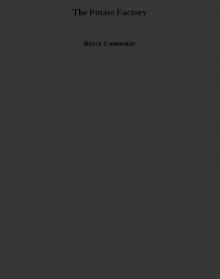 The Potato Factory
The Potato Factory The Power of One
The Power of One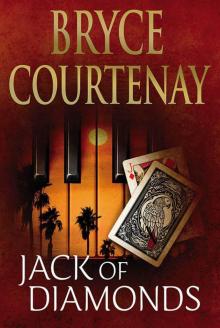 Jack of Diamonds
Jack of Diamonds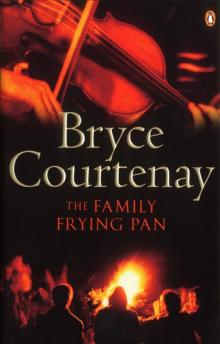 The Family Frying Pan
The Family Frying Pan April Fool's Day
April Fool's Day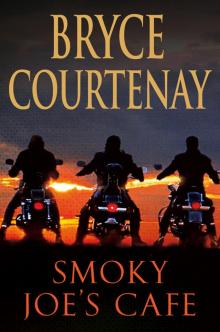 Smoky Joe's Cafe
Smoky Joe's Cafe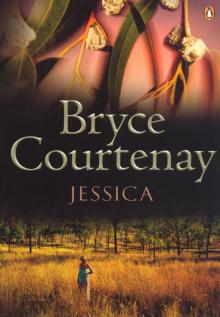 Jessica
Jessica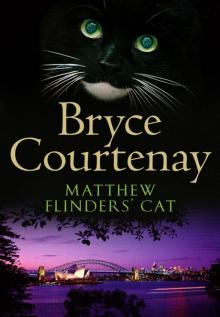 Matthew Flinders' Cat
Matthew Flinders' Cat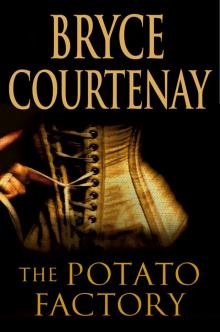 Potato Factory
Potato Factory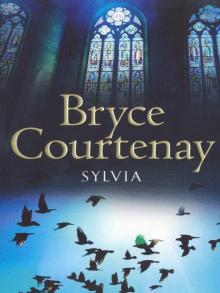 Sylvia
Sylvia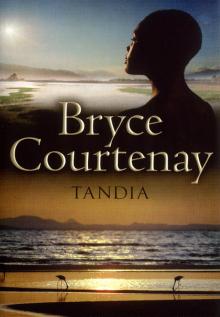 Tandia
Tandia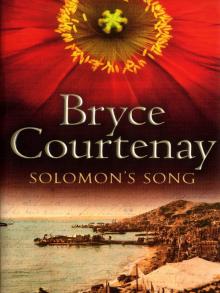 Solomon's Song
Solomon's Song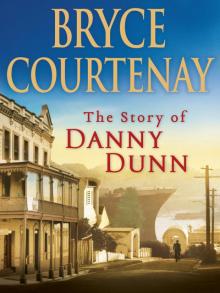 The Story of Danny Dunn
The Story of Danny Dunn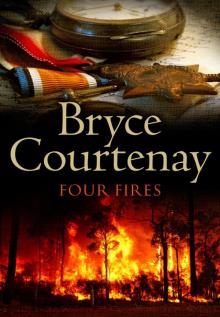 Four Fires
Four Fires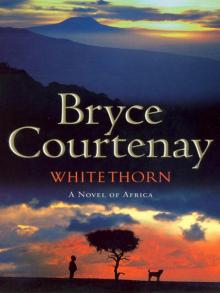 Whitethorn
Whitethorn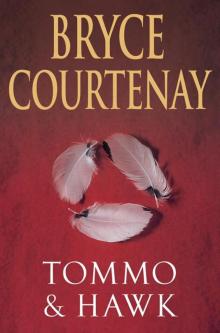 Tommo and Hawk
Tommo and Hawk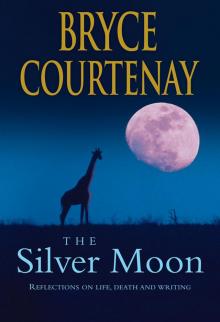 The Silver Moon
The Silver Moon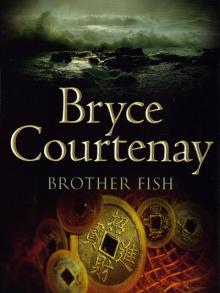 Brother Fish
Brother Fish FORTUNE COOKIE
FORTUNE COOKIE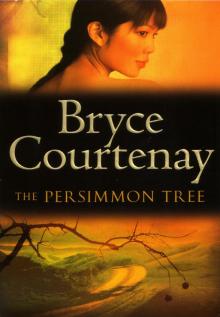 The Persimmon Tree
The Persimmon Tree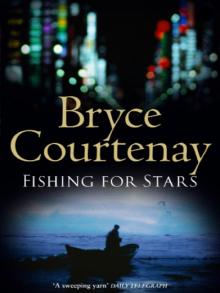 Fishing for Stars
Fishing for Stars